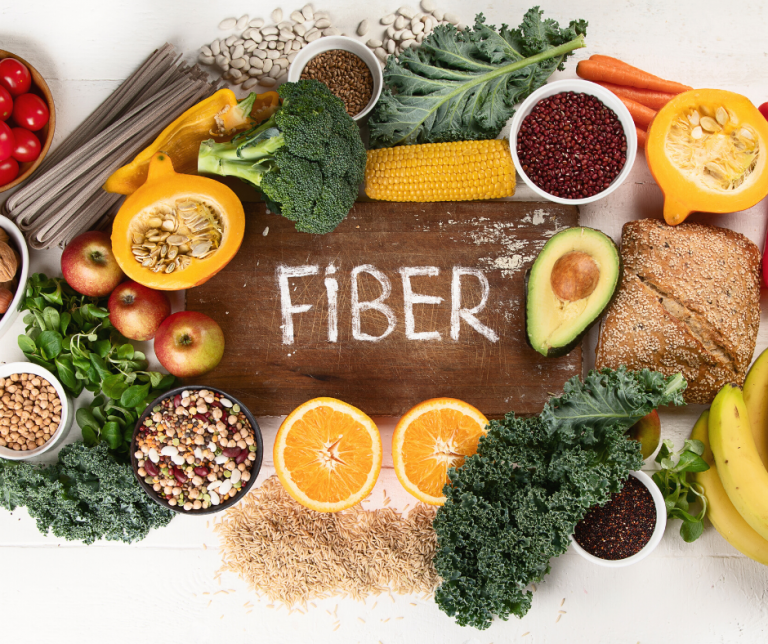By Goodnews Buekor
Increase your fiber intake! Perhaps you have heard this before. But do you know why fiber is so beneficial for your health?
What is dietary fiber?
Dietary fiber, also called “roughage or bulk,” comprises the fraction of plant foods that the body can’t assimilate or digest. Contrary to other food elements like fats, proteins, or carbohydrates that the body catabolizes and absorbs, it differs from the fiber. Instead, fiber passes moderately through the stomach, small intestine, and colon, then out of the body.
Benefits of Dietary Fiber
- Defense against heart disease
Over the past decade, many studies have researched the impact of dietary fiber on heart health, including curbing cardiovascular disease and reducing blood pressure.
“People eating high fiber diets had a relatively reduced risk of cardiovascular disease and lower mortality resulting from these conditions,” says a 2017 report.
The researchers stated that the ability of fiber to protect health could be because its intake lowers total cholesterol and low-density lipoprotein (LDL) cholesterol or bad cholesterol, which is a primary cause of heart disease.
- Weight control
High fiber intake can contribute significantly to weight loss for people who desires to lose some kilo. High fiber foods allow you to feel fuller for a long time and may help one stick to a diet.
A 2019 study confirms that people who increased their dietary fiber consumption increased their weight loss and adherence to their dietary caloric restriction.
- Enhance gut health
Fiber plays a crucial role in keeping the gut healthy. Consuming just enough fiber can prevent or lessen constipation, promote smooth movement of waste through the body, and increase healthy gut microbiota.
According to a 2015 study, dietary fiber increases the bulk of stool, helps promote regular bowel movements, and reduces the time waste spent inside the intestine.
A 2009 review also stated that ” dietary fiber has a positive impact on gastrointestinal disorders, including colorectal ulcer, Hiatal hernias, hemorrhoids, diverticular disease, gastroesophageal reflux disease.”
- Lowers diabetes risk
Incorporating more fibre into one’s diet may also be helpful for diabetes. Fibre slows down the body’s absorption of sugar, helping to curtail blood sugar spikes after meals.
A 2018 review concluded that people who consumed high fibre diets, mostly cereal fibre, had a lower risk of developing type 2 diabetes. These individuals also reported a reduction in blood glucose levels.
- Enhances longer life
Research has revealed that increasing dietary fiber intake, mostly cereal fibre, reduces the risk of dying from cardiovascular disease and all forms of cancer.
Best Fiber Choices
You should consider increasing your fiber intake if you aren’t getting adequate dietary fibers. Some good fiber choices are:
- Fruits and vegetables
- Beans, peas, and other legumes
- Whole grain products
- Nuts and seeds
Refined or processed foods, such as canned fruits and vegetables, pulp-free juice, white bread, and non-whole-grain cereals, have reduced fiber content. The grain refining process removes the outer coat from the grain, which lowers its fibre content.
How much is too much?
According to the Institute of Medicine, which gives science-based guidance on issues of medicine and health, recommends daily fibre consumption for adults:
- For women over 50 or younger, 25grams of dietary fibre is recommended by researchers.
- For women over the age of 51 or older, 21grams of dietary fibre is also recommended.
Helpful tips to boost your fibre intake
Minor variations in one’s diet can cause a lot of change. The following tips can help:
- Consume fruits and vegetables without peeling off the skin, as the skin contains a lot of fiber.
- Incorporate beans and lentils into a salad, soups, and side dishes.
- Substitute white bread and pasta for whole-wheat versions.
- Aim to eat 4.5 cups of vegetables and 4.5 cups of fruits daily, as recommended by the American Heart Association.
- If incapable of meeting the daily target, consider using fibre supplements after meeting up with your doctor.
High-fibre foods are beneficial for one’s health, although too much fibre can increase intestinal gas, abdominal bloating, and cramping. Therefore, fibre intake can be gradually increased to allow the bacteria in the digestive system to adjust to the change.
It is also essential to drink enough water as fibre works best when it absorbs water.





Comments are closed.